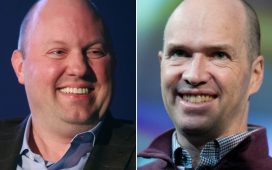John Shermer, the founder of Lightwave, had some of his best ideas in borstal. He was teaching delinquent teenagers in Birmingham back in the 1980s. “I used to think software was some kind of lingerie.”
Then he discovered the Acorn BBC Micro. “There was this kid, aged 16, put away for a double murder. He couldn’t read or write. He’d pick a fight rather than answer a question. But if you put him in front of a computer, his behaviour changed – for the better.”
If he got it wrong, he could start again. “He could fail without humiliation,” says Shermer when we meet up in London. The computer had infinite patience and it wasn’t judgemental.
Which is what gave him the idea to build a dedicated computer room for the other inmates and develop what became known as “Tech4Good”, inspiring otherwise underskilled young people. Working for the NHS with EU funding, he was soon tailoring tech around Europe to improve the lives of anyone with a disability.
There was a man in Antwerp with a brainstem injury who could only twitch a finger: Shermer dreamed up a glove with sensors that enabled him to type. He adapted a Psion organiser to give a voice to a woman who had lost the power of speech. The victim of a road accident who could only move his chin was able to operate a keyboard Shermer had tweaked. “The tragedy was that these were one-offs and not generally available.”
And everything cost too much. He made a plug-in power outlet you could control with the blink of an eye (literally). But each unit cost £150 each and he could only make a few hundred.
The idea of starting his own company was to bring the price down and make more units and make them for anyone and everyone, with or without a disability. “My wife was appalled when I quit.” But he got the price down to £10 per unit and was making 10,000 at a time. “The NHS was spending millions but I didn’t think they were spending it wisely.”
Now 63, Shermer was born in West Bromwich. His father worked on Spaghetti Junction and the young Shermer would go to the factory on a Saturday to watch him putting it together. He built his own hi-fi from scratch aged 11. He was chronically dyslexia (as are his own children) but was saved by predictive typing and audiobooks. Shermer describes his job as “liberating people”.
He was inspired in part by a meeting with Stephen Hawking in the mid-90s at the Dorchester in London, when they talked about the future of disability and tech. Lightwave started off, 12 years ago, enabling NHS patients to be independent at home.
Even if they couldn’t move too well they could still turn the lights on and off and answer the phone. It was smart home technology before it became fashionable. “We changed the lives of thousands of people,” he says. “You had to make it simple and it had to be robust: people’s lives depended on it.”
He is scathing about bluetooth. “It astonishes me to this day that we make stuff like that. The fundamental physics is flawed. The waves won’t go through walls. The frequency is wrong.” Lightwave uses a dedicated radio protocol.
The emergence of the smartphone transformed the business for Shermer. “It’s democratising,” he says. Anyone can use their phone to control all the appliances in their home, remotely. In January 2012 Lightwave produced a pioneering “gateway” device for a house. “We made all the mistakes,” he says, “but now it works.”
Lightwave is still based in Birmingham and uses local engineers and they design all their own apps. He started with two employees and now it’s up to 60-plus. He reckons that dyslexia helps you in some ways. “I can’t write long reports but I can stand and talk all day long. I can’t code either, but I do have the ideas.” He carries a “daybook” around with him in which he sets down his latest brainwave.
Shermer says that Alexa and other virtual assistants have also made a big difference on the domestic front. 50% of all commands are now sent via voice. His own mother is 87. “She can’t use a computer but she can still talk to Alexa.”
Shermer is proud of being “an unknown little British tech company” up against the giants of the industry. “They’re still getting it wrong,” he says. Apple invited him to Ireland for talks. They wanted to put an Apple chip in all his products and gave him 48 hours to consider. Shermer said he didn’t need 48 hours and turned them down flat. “We’re dealing with people’s lives,” he said. “It has to work.” Now Lightwave products are on sale in Apple stores.
Whether you have dementia or you’re easily distracted, it’s useful to have the kind of kit that can spot if you left the cooker on. “We don’t make gadgets,” Shermer says dismissively. “We make things that screw to the fabric of your house. Stuff that’s permanent and increases the value of your home.” Lightwave are also collaborating with housing providers and companies like Honeywell to create iPhone-ready homes. The technology is built into the architecture.
Shermer now works with the likes of Google and Amazon. “But we stand our corner,” he says. He reckons that the larger companies are at a disadvantage in that they produce generic products, whereas Lightwave can be more bespoke. “They’re top-down, whereas we grew up looking at it from the user’s point of view.”
Shermer reckons he could also come up with a much better system for Hawking if he was still around. “It was a slow, stilted conversation with him. He would take a minute to say ‘I agree’. And it was an American voice system. There are still tens of thousands in his situation who would benefit.”







